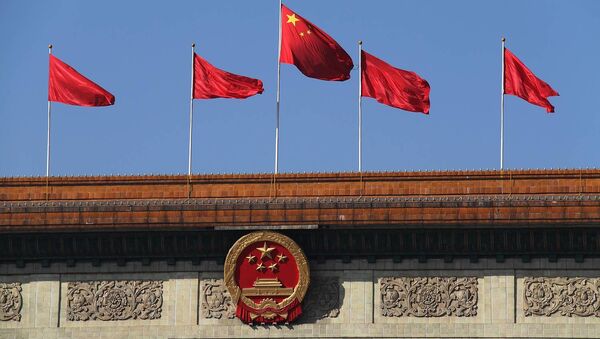MOSCOW, April 30 (RIA Novosti) – China’s economic boom has led to the imminent revival of its consciousness as a centuries-old civilization that is now trying to spread its cultural influence across the world, says Sergei Luzyanin, Professor of Oriental Studies at Moscow State Institute of International Relations.
Last year, Chinese President Xi Jinping revealed his dream of “a great revival of the Chinese nation” to introduce China to the world as a modern power, rather than a trove of mothballed historical artifacts like the Terracotta Army or the Forbidden City.
“A nation once hidden behind the ‘Bamboo Curtain,’ China has begun to open up to the world quite fast and unexpectedly since the early reform era. The Western perception of its culture is rather chaotic as it tries to grasp the idea of a 5,000-year Chinese colossus in its simplified form,” Luzyanin said.
The new Chinese government under Xi has recognized this problem and devised a step-by-step program to introduce the West to its culture, starting from the outward attributes of China’s ancient history like Confucius to the modern history of Communism and Mao up to its contemporaneous form, with its changing city landscape and vibrant metropolises.
“The next stage would be to teach the West about the deeper layers of Chinese culture. Here Beijing faces a problem akin to that of a primary school teacher who needs to explain to the ‘children’ that the ‘adult world’ of the Chinese civilization is a hundred times older and more complex than all Western civilizations combined, which is far from an easy task,” Luzyanin noted.
According to the expert, the West has been comfortable with a mixed bag of stereotypes about China that comprises elements of popular culture, cinema tropes, Chinese cuisine tips and tourist brochures. The Chinese hope to make use of these scraps and pieces to introduce Americans and Europeans to their culture.
“Projects of the Confucius Institute, huge financial and political resources that are lavished on the promotion of China’s image abroad are used to ‘coach their students’ ahead of the ‘high school.’ The civilization strategy is gaining steam and the results can wait, because the Chinese know that the day will come when the vine shall give its fruit,” Luzyanin said.
On the other hand, the West hasn’t given up on its attempts to alter the Chinese mentality, although to no avail, because Westernization efforts have only scratched the surface of the Chinese society without making them more liberal politically.
“One can safely say that [the effort] is doomed to fail. The US is making the same mistake as the Soviet leaders of the 1950-60s did when they hoped to engage China into the international Communist movement,” the pundit said.
“For the Chinese, ideological doctrines are secondary … meaning that China only appears to have succumbed to Western influence, while it remains traditional and unchanged,” he said. “We can stay assured that China will digest … and eventually assimilate it all.”
Luzyanin pointed to the Chinese political system and the Communist Party, a reflection of its thousand-year-old management tradition, which answers the question of how it has been surviving alongside liberal economic reforms.
The great Chinese philosopher Confucius said in his Analects that “the gentleman aims at harmony, and not at uniformity. The mean man aims at uniformity and not at harmony.” This, the expert said, is characteristic of the Chinese and Western mindsets, with the former working towards the goal of several centers of power and the latter trying to reduce the existing diversity to a common denominator.
“The question is whether Chinese civilization can create new technologies,” Luzyanin said. “The traditional one certainly could, since all advanced technologies of the past – the compass, the paper, the gunpowder and much more – arose in China.”
By the 18th to 19th centuries, Chinese civilization started to lose to the more vibrant American, European and Dutch economic models, possibly due to China’s preoccupation with humanities compared to technological development. In this regard, Xi Jinping’s desire to revive the nation, whose prior greatness reaches far deeper into the world’s past than that of the West, is only logical.
China’s cultural expanse could serve to uphold its economic miracle that left the world open-mouthed back in 1978. Beijing and Moscow have grown closer since then, with China’s western neighbor exporting tons of raw materials the country needs to keep alight the fires in the furnace of its industry.
In May, President Vladimir Putin is expected to come to Beijing where he will meet with his Chinese counterpart, Xi Jinping. A number of bilateral agreements are waiting to be signed on the sidelines, including a deal on liquefied natural gas deliveries to China.


